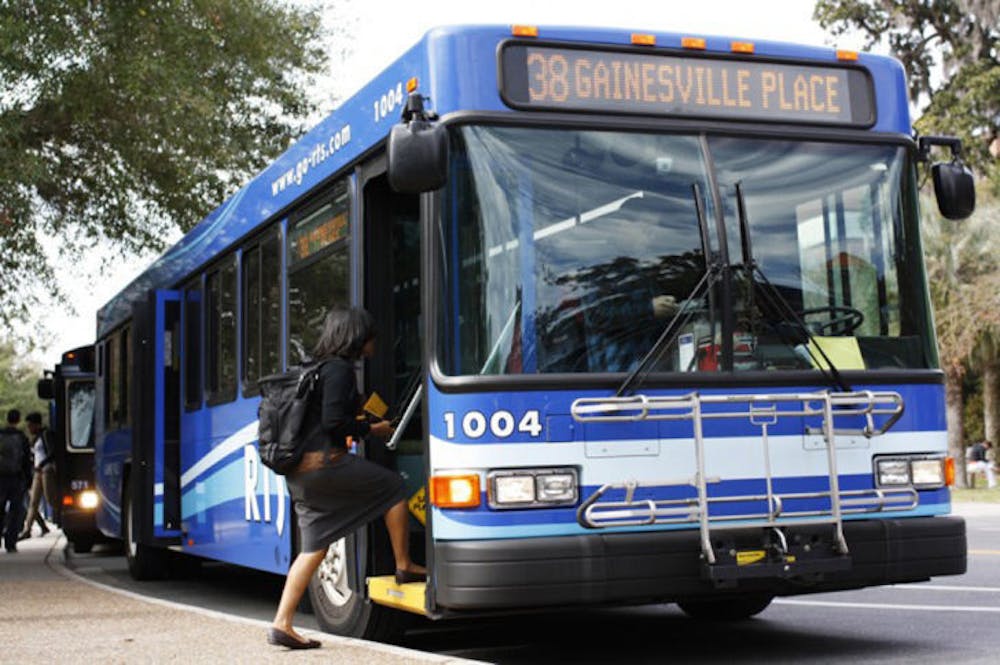Gainesville is waiting on government approval for public use of autobuses, which run with electricity instead of driven by people.
City Spokesperson Chip Skinner said Gainesville hoped to receive approval from the Federal Highway Administration last year, though office closure during the federal government shutdown resulted in a backlog.
Once approved, the service could be up and running within two to four weeks, Skinner said. The bus would run along Southwest Second Avenue around Innovation Square. If the service is successful, the route will expand to the Rosa Parks Downtown Station and, eventually, to the UF campus.
With funding from the Florida Department of Transportation, the city is leasing four autonomous buses from Transdev, Skinner said. Each bus can carry a total of 12 passengers, six standing and six sitting.
Gainesville began testing the first bus last August.
Skinner said the bus was monitored while learning how to drive on Gainesville roads. The testing phase has since been completed.
“We took the lead vehicle and downloaded everything that it learned during that testing period into the other three vehicles,” he said.
Once the lease ends, the city will determine if the service is beneficial and cost-effective. Skinner said the buses could significantly help people and allow for morning shuttle services from the east side of Gainesville to the Rosa Parks Downtown Station where they can catch larger buses.
“[The autobus could] allow people to manage their time more efficiently,” he said. “Instead of driving their vehicle, they could possibly ride an automated vehicle and get some work done on the way to the office.”
A 2018 survey conducted by the city and the UF Transportation Institute found mixed feelings about the use of autobuses. While some people are excited to see new technology coming to Gainesville, others do not want their children riding their bikes on the same road as an autonomous vehicle, Skinner said.
Some people also expressed a concern for the RTS drivers whose jobs may be affected, but Skinner said the autonomous buses would create new jobs because people will monitor them and control the buses remotely if necessary.
Mitchell McGahan, a 24-year-old Santa Fe College operational management junior, lives in the area where the bus would operate. He said he would “definitely” be open to trying the new bus.
“American cities are really lagging behind on electrical buses, compared to Europe,” McGahan said. “I’m happy to hear that a city in America is trying to implement an electronic bus system.”






